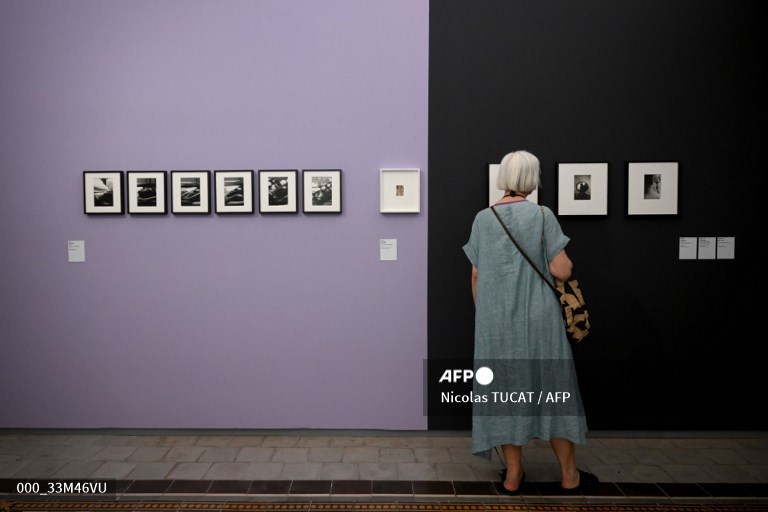A host of never before seen work by the late great US artist Saul Leiter is being showcased at one of the world’s biggest photography festivals in France.
Almost all of the paintings and drawings in the major Saul Leiter show at the “Rencontres d’Arles” festival in the southern French city have never been shown before.
A former fashion photographer, Leiter — who died in 2013 — was a leading light of the New York school of photography of the 1940s and 1950s that included Diane Arbus, Richard Avedon, and Robert Frank.
Curator Anne Morin called him “one of the 20th century’s most fascinating artist-photographers”.
“Everything is a matter of balance, exactitude, and humility in the works of this man, who nonetheless accorded great importance to imperfection,” she said.
In a short film presented at the show, Leiter said “You don’t have to apologize” for looking for beauty.
While summer temperatures outside soared well above 30 degrees Celsius (86 degrees Fahrenheit), the mercury hovered at around 20C in an underground exhibition space called the “cryptoportiques” where merchants once stored their wares in Roman times.
Fittingly, it is hosting images of prehistoric caves at Arcy-sur-Cure in central France taken by French photographer Juliette Agnel.
Drops of water occasionally oozed into the cryptoportiques, bringing to life the humidity pictured in the caves.
The photos had to be covered with a fine film to protect them from the moist conditions, festival director Christoph Wiesner told AFP.
Agnel illuminates only some parts of the caves in her photos, which show imaginary creatures and play on light and darkness in the manner of Old Masters like Rembrandt and Goya.
The work “explores extreme environments, whose unsettling beauty provokes senses of wonder and feelings of the sublime”, wrote curator Marta Ponsa.
Scandinavian sisterhood
In a nearby centuries-old cloister, the Camargue, France’s largest wetland located next to Arles between the Rhone River and the Mediterranean, takes pride of place in an exhibition by France’s Eva Nielsen with Marianne Derrien.
“Insolare” captures the Camargue’s reeds, marshes, the action of salt on the land, agricultural activity, and local architecture in paintings, silk-screen prints, and photography.
Wiesner said the Camargue was “particularly exposed” to climate change, with Nielsen describing the location as “at once wild and fashioned by man”.
The sweltering temperatures of southern France take a dive into the chillier climes of Scandinavia with the exposition “Sosterskap” (“Sisterhood”), which highlights work by 18 women photographers who explore the welfare state from a feminist perspective.
Fathers on paternity leave caring for their children, handcuffed women looking towards the future, and women of immigrant backgrounds, the latter by Nairobi-born Sweden-based artist Ikram Abdulkadir, feature in the displays.
The curators highlighted the feeling of sisterhood in the work by young Finn Emma Sarpaniemi, whose self-portrait was selected as the festival’s banner photo.
Her portraits of groups of women in playful poses “embody a sense of togetherness and highlight the importance of fostering strong connections with those around us”, they wrote.
The festival with its 45 exhibitions runs until 24 September.
